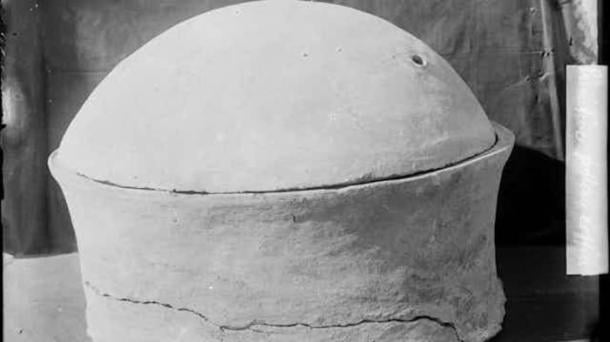Science
Scientists Unlock Ancient Egyptian Genome, Revealing Ancestral Links

A team of scientists has successfully sequenced the genome of a man buried in Egypt approximately 4,500 years ago. This groundbreaking study provides valuable insights into the genetic makeup of early Egyptians and highlights connections to both ancient North Africa and Mesopotamia, encompassing present-day Iraq, parts of Syria, Turkey, and Iran.
The challenges of studying ancient DNA are significant due to Egypt’s harsh climate and terrain, which can damage genetic material over millennia. Lead researcher Adeline Morez Jacobs and her team achieved a remarkable breakthrough in overcoming these obstacles, paving the way for a deeper understanding of Egypt’s early dynastic history.
Unlocking the Secrets of Ancient Genetics
Genome sequencing refers to the process of determining the complete genetic code of an organism. In humans, this consists of around 3 billion chemical “letters” represented by the nucleotides A, C, T, and G. Although the technology for sequencing genomes was developed in the late 1970s, its application to ancient remains has lagged behind and posed considerable difficulties.
Jacobs explained that the advancements in genetic sequencing technology over recent years have made it increasingly feasible to analyze ancient DNA. These technological improvements have not only enhanced the quality of the genetic material that can be extracted but have also increased the efficiency of the sequencing process itself.
The findings from this study suggest that the genetic ancestry of early Egyptians is more complex than previously understood. The results indicate significant genetic contributions from both the local North African population and migrants from regions that were part of ancient Mesopotamia.
Implications for Understanding Early Dynastic History
The implications of these findings are substantial for historians and archaeologists studying the origins of Egypt’s ancient civilization. By revealing the interconnectedness of different ancient populations, this research challenges long-held assumptions about the homogeneity of early Egyptian society.
Jacobs emphasized that understanding the genetic heritage of ancient Egyptians can provide crucial context for interpreting archaeological discoveries and historical narratives. It allows for a more nuanced view of how cultures interacted, traded, and mingled over the centuries.
This research not only enriches the tapestry of human history but also underscores the importance of genetic studies in revealing the complexities of our ancestral backgrounds. As scientists continue to explore the genetic legacies of ancient populations, the potential to reshape our understanding of history remains vast.
The collaborative effort behind this study exemplifies the dedication of researchers in the field of ancient genetics. As they push the boundaries of what is possible in analyzing ancient remains, the knowledge gained could significantly impact our understanding of human evolution and migration patterns throughout history.
This remarkable achievement in genome sequencing marks a new chapter in the exploration of ancient cultures, providing insights that may change the course of historical scholarship and our understanding of the past.
-

 Top Stories3 months ago
Top Stories3 months agoTributes Surge for 9-Year-Old Leon Briody After Cancer Battle
-

 Entertainment4 months ago
Entertainment4 months agoAimee Osbourne Joins Family for Emotional Tribute to Ozzy
-

 Politics4 months ago
Politics4 months agoDanny Healy-Rae Considers Complaint After Altercation with Garda
-

 Top Stories4 months ago
Top Stories4 months agoIreland Enjoys Summer Heat as Hurricane Erin Approaches Atlantic
-

 World5 months ago
World5 months agoHawaii Commemorates 80 Years Since Hiroshima Bombing with Ceremony
-

 Top Stories3 months ago
Top Stories3 months agoNewcastle West Woman Patricia Foley Found Safe After Urgent Search
-

 Top Stories5 months ago
Top Stories5 months agoFianna Fáil TDs Urgently Consider Maire Geoghegan-Quinn for Presidency
-

 World5 months ago
World5 months agoCouple Convicted of Murdering Two-Year-Old Grandson in Wales
-

 World5 months ago
World5 months agoGaza Aid Distribution Tragedy: 20 Killed Amid Ongoing Violence
-

 World5 months ago
World5 months agoAristocrat Constance Marten and Partner Convicted of Infant Murder
-

 Top Stories4 months ago
Top Stories4 months agoClimbing Errigal: A Must-Do Summer Adventure in Donegal
-

 Top Stories4 months ago
Top Stories4 months agoHike Donegal’s Errigal Mountain NOW for Unforgettable Summer Views









